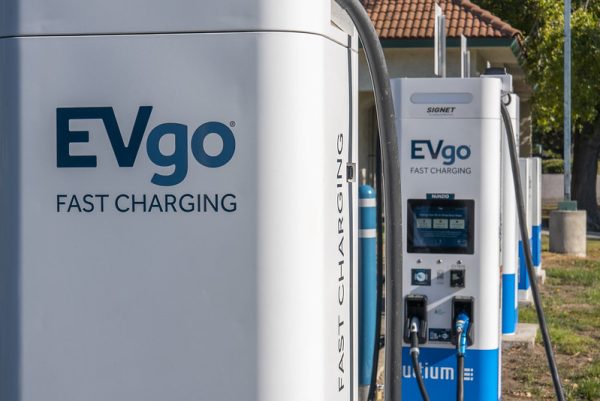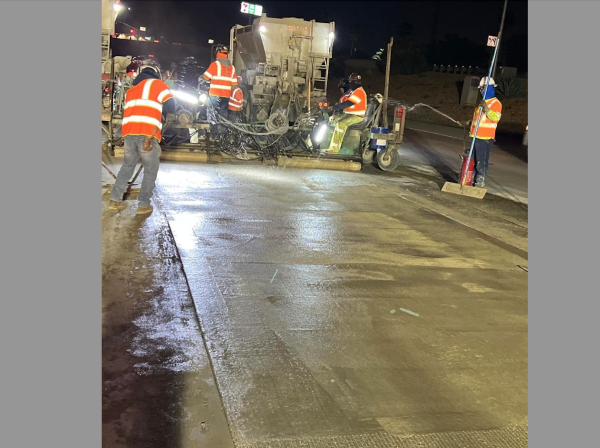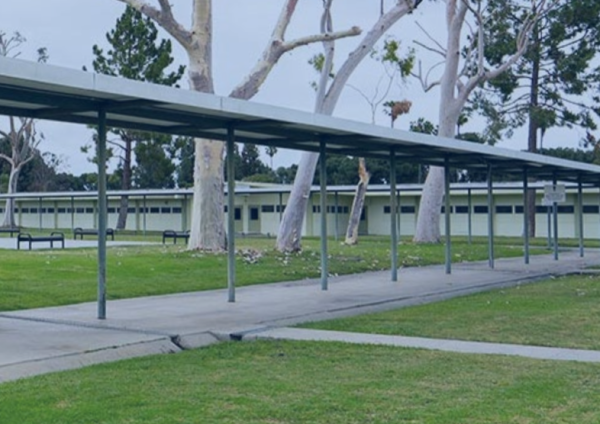By Melissa Sanchez and Mica Rosenberg
This story was originally published by ProPublica. ProPublica is a Pulitzer Prize-winning investigative newsroom. Sign up for The Big Story newsletter to receive stories like this one in your inbox.
Series: The New Immigration: How Recent Arrivals at the Border Have Changed the Country and Its Attitudes
At first, she didn’t think much about the Nicaraguan asylum-seekers who began moving into town a few years ago. Rosa was an immigrant too, one of the many undocumented Mexican immigrants who’d settled nearly 30 years ago in Whitewater, a small university town in southeast Wisconsin.
Some of the Nicaraguans had found housing in Rosa’s neighborhood, a trailer park at the edge of town. They sent their children to the same public schools. And they got jobs in the same factories and food-processing facilities that employed many of Rosa’s friends and relatives.
Then Rosa realized that many of the newcomers with ongoing asylum cases could apply for work permits and driver’s licenses — state and federal privileges that are unavailable to undocumented immigrants. Rosa’s feelings of indifference turned to frustration and resentment.
“It’s not fair,” said Rosa, who works as a janitor. “Those of us who have been here for years get nothing.”
Her anger is largely directed at President Joe Biden and the Democratic Party for failing to produce meaningful reforms to the immigration system that could benefit people like her. In our reporting on the new effects of immigration, ProPublica interviewed dozens of long-established Latino immigrants and their U.S.-born relatives in cities like Denver and Chicago and in small towns along the Texas border. Over and over, they spoke of feeling resentment as they watched the government ease the transition of large numbers of asylum-seekers into the U.S. by giving them access to work permits and IDs, and in some cities spending millions of dollars to provide them with food and shelter.
It’s one of the reasons so many Latino voters chose Donald Trump this election, giving him what appears to be Republicans’ biggest win in a presidential race since exit polls began tracking this data. Latinos’ increased support for Trump — who says he could use the military to execute his plans for mass deportations — defied conventional wisdom, disrupting long-held assumptions about loyalties to the Democratic Party. The shift could give Republicans reason to cater to Latinos to keep them in the party’s fold.
On the campaign trail, Trump singled out Whitewater after the police chief wrote a letter to Biden asking for help responding to the needs of the new Nicaraguan arrivals. While some residents were put off by Trump’s rhetoric about the city being destroyed by immigrants, it resonated with many of the longtime Mexican-immigrant residents we interviewed. They said they think the newcomers have unfairly received benefits that they never got when they arrived illegally decades ago — and that many still don’t have today.
Among those residents is one of Rosa’s friends and neighbors who asked to be identified by one of her surnames, Valadez, because she is undocumented and fears deportation. A single mother who cleans houses and buildings for a living, Valadez makes extra money on the side by driving immigrants who don’t have cars to and from work and to run errands. It’s a risky side hustle, though, because she’s frequently been pulled over and ticketed by police for driving without a license, costing her thousands of dollars in fines.
One day two summers ago, one of her sons found a small purse at a carnival in town. Inside they found a Wisconsin driver’s license, a work permit issued to a Nicaraguan woman and $300 in cash. Seeing the contents filled Valadez with bitterness. She asked her son to turn in the purse to the police but kept the $300. “I have been here for 21 years,” she said. “I have five children who are U.S. citizens. And I can’t get a work permit or a driver’s license.”
When she told that story to Rosa one afternoon this spring, her friend nodded emphatically in approval. Rosa, like Valadez, couldn’t vote. But two of Rosa’s U.S.-born children could, and they cast ballots for Trump. One of Rosa’s sons even drives a car with a bumper sticker that says “Let’s Go Brandon” — a popular anti-Biden slogan.
Rosa said she is glad her children voted for Trump. She’s not too worried about deportation, although she asked to be identified solely by her first name to reduce the risk. She believes Trump wants to deport criminals, not people like her who crossed the border undetected in the 1990s but haven’t gotten in trouble with the law. “They know who has been behaving well and who hasn’t been,” she said.
In the months leading up to the presidential election, numerous polls picked up on the kinds of frustrations felt by Rosa and her family. Those polls indicated that many voters considered immigration one of the most pressing challenges facing the country and that they were disappointed in the Biden administration’s record.
Biden had come into office in 2021 promising a more humane approach to immigration after four years of more restrictive policies during the first Trump administration. But record numbers of immigrants who were apprehended at the U.S.-Mexico border began to overwhelm the system. While the Biden administration avoided talking about the border situation like a crisis, the way Trump and the GOP had, outspoken critics like Republican Texas Gov. Greg Abbott amplified the message that things at the border were out of control while he arranged to bus thousands of immigrants to Democrat-controlled big cities around the country. In Whitewater, hundreds of Nicaraguans arrived on their own to fill jobs in local factories, and many of them drove to work without licenses, putting a strain on the small local police department with only one Spanish-speaking officer.
While the Biden administration kept a Trump expulsion policy in place for three years, it also created temporary parole programs and an app to allow asylum-seekers to make appointments to cross the border. The result was that hundreds of thousands more immigrants were allowed to come into the country and apply for work permits, but the efforts didn’t assuage the administration’s critics on the right or left. Meanwhile, moves to benefit undocumented workers who were already in the country were less publicized, said Kathleen Bush-Joseph, a policy analyst at the nonpartisan Migration Policy Institute.
The White House did not respond to requests for comment.
Conchita Cruz, a co-founder and co-executive director of the Asylum Seeker Advocacy Project, which serves a network of around 1 million asylum-seekers across the country, said that because of either court challenges or processing backlogs, Biden wasn’t able to deliver on many of his promises to make it easier for immigrants who’ve lived in this country for years to regularize their status.
“Policies meant to help immigrants have not always materialized,” she said.
Cruz said that while the administration extended the duration of work permits for some employment categories, backlogs have hampered the quick processing of those extensions. As of September, there were about 1.2 million pending work permit applications, according to U.S. Citizenship and Immigration Services data, with many pending for six months or more. USCIS said the agency has taken steps to reduce backlogs while processing a record number of applications.
Biden’s attempts to push for broad immigration reform in Congress, including a proposal his administration sent on his first day in office, went nowhere. Earlier this year, in an effort to prevent a political win for Biden before the election, Trump pressured Republicans to kill bipartisan legislation that would have increased border security.
Camila Chávez, the executive director of the Dolores Huerta Foundation in Bakersfield, California, said Democrats failed to combat misinformation and turn out Latino voters. She recalled meeting one young Latina Trump supporter while she knocked on voters’ doors with the foundation’s sister political action organization. The woman told her she was concerned that the new immigrant arrivals were bringing crime and cartel activity — and potentially were a threat to her own family’s safety.
“That’s our charge as organizations, to make sure that we are in the community and educating folks on how government works and to not vote against our own self-interests. Which is what’s happening now,” said Chávez, who is the daughter of famed farmworker advocate Dolores Huerta and a niece of Cesar Chávez.
Trump has made clear he intends to deliver on his deportation promises, though the details of how he’ll do it and who will be most affected remain unclear. The last time Trump was elected, he moved quickly to issue an executive order that said no “classes or categories” of people who were in the country illegally could be exempt from enforcement. Tom Homan, who Trump has picked to serve as his “border czar,” said during a recent interview with Fox & Friends that immigrants who were deemed to be a threat to public safety or national security would be a priority under a new administration. But he said immigrants with outstanding deportation orders will also be possible targets and that there will be raids at workplaces with large numbers of undocumented workers.
The Trump campaign did not respond to a request for comment.
Mike Madrid, a Republican strategist, said it’s wishful thinking to believe Trump will give any special treatment to undocumented immigrants who have been living and working in the U.S. for a long time. But he’s heard that sentiment among Latino voters in focus groups.
“They believe that they are playing by the rules and that they will be rewarded for it,” Madrid said. “Republicans have never been serious about legal migration, let alone illegal migration. They’re allowing themselves to believe that for no good reason.”
The Republican Party’s growing appeal to Latino voters was especially noticeable in places like Del Rio, a Texas border town. As ProPublica previously reported, Trump flipped the county where Del Rio sits from blue to red in 2020 and won it this year with 63% of the vote.
Sergio Garza Castillo, a Mexican immigrant who owns a gas station and convenience store in Del Rio, illustrates that political shift. Garza Castillo said he came to the U.S. legally as a teenager in the 1980s after his father, a U.S. citizen, petitioned and waited for more than a decade to bring his family across the border.
Ever since Garza Castillo became a U.S. citizen in 2000, he has tended to vote for Democrats, believing in their promise of immigration reform that could lead to more pathways to citizenship for long-established undocumented immigrants, including many of his friends and acquaintances.
But the Democrats “promised and they never delivered,” Garza Castillo said. “They didn’t normalize the status of the people who were already here, but instead they let in many migrants who didn’t come in the correct way.” He believes asylum-seekers should have to wait outside the country like he did.
He said he began to turn away from the Democrats in September 2021, when nearly 20,000 mostly Haitian immigrants seeking asylum waded across the Rio Grande from Mexico and camped out under the city’s international bridge near Garza Castillo’s gas station. Federal authorities had instructed the immigrants to wait there to be processed; some remained there for weeks, sleeping under tarps and blankets with little access to water and food. Garza Castillo said he and other business owners lost money when the federal government shut down the international bridge, an economic engine for Del Rio.
Some of the Haitian migrants were eventually deported; others were allowed into the U.S. to pursue asylum claims and given notices to appear in court in a backlogged immigration system that can take years to resolve a case. “That to me is offensive for those who have been living here for more than 10 years and haven’t been able to adjust their status,” Garza Castillo said.
He hopes Trump seizes on the opportunity to expand support from Latino voters by creating a path to citizenship for undocumented immigrants who’ve been here for years. “If he does that,” he said, “I think the Republican Party will be strong here for a long time.”
Anjeanette Damon, Nicole Foy, Perla Trevizo and Gerardo del Valle contributed reporting.
ProPublica is a Pulitzer Prize-winning investigative newsroom. Sign up for The Big Story newsletter to receive stories like this one in your inbox. Republished with Creative Commons License (CC BY-NC-ND 3.0).







